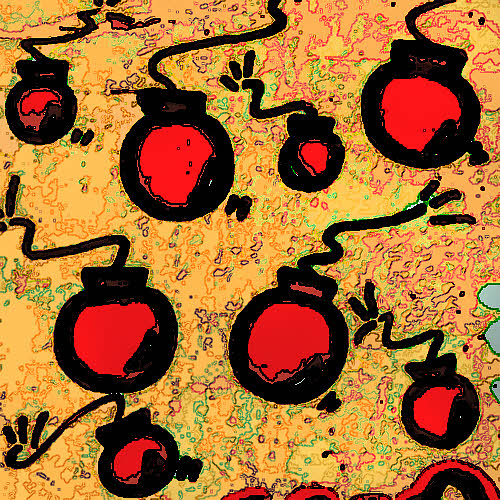Some of this, some of that, and a bit of whatever.

My Spanish teacher says that instant coffee is quicker – sometimes you don't have time to brew the other kind of coffee, so you make instant.
Yes and no.
Most Americans, these days, would say "Ah...no, that's not even coffee."
While viewing an apartment owned by a very nice family, I was offered coffee as an honored guest. The coffee was instant. And decaf.
I appreciated the gesture, and for instant coffee, it was good enough, but if you are a gringo, imagine offering your guests a choice of two instant coffees – one in a jar and the other, pre-mixed, sugared, and seasoned, in a paper packet that came from a factory.
It's a difference of cultures – not good here, bad there, or vice versa. Only a difference. And not all brewed coffee is good, as you know. My mother insisted on drinking swill made from the scorched brown sawdust that came in a can. It was what she knew. I made good coffee for her once or twice, but she couldn't handle it – it didn't taste like Folgers.
Mom was right about that.
Surprisingly to many, not all Latin Americans are heavy coffee drinkers. A lot of them do not drink any kind of coffee. I am not an expert on this, but I gather that Central Americans drink coffee, Colombians drink coffee, and maybe Venezuelans. After that, as you travel south, not so much. Maybe Brazilians, since Brazil is a large coffee producer.
But Chile, for example. Definitely not there. It's not a coffee place.
A good online forum I found discusses all things Chilean. The gringos on the forum constantly lament the instant coffee culture in Chile. If you ask for café (coffee), you get instant. If you want real coffee (i.e., brewed), you ask for café café. And you may or may not get more than a blank stare if you do.
Try Ecuador then. Ecuador's not a coffee place. There is coffee here if you want it, and where I live (Cuenca), good coffee makings are available at a gringo-owned bookstore for $4.50 a pound, as grounds or beans. And that at least is is equal to the coffee I paid $15.95 a pound for at one of the U.S.'s best roasters in Olympia, WA.
And coffee is available brewed, in a cup, though the quality varies, as it does everywhere.
My Spanish teacher, who was born here, says that here brewed coffee is often called café pasado, when you want to be absolutely specific. The idea being that since the coffee has passed through a filter, it was definitely brewed. Instant coffee – no. It has no reason to touch a filter unless your water comes with bugs, but that is not part of city life, so pasado equals brewed.
Some terms I've come across:
- Café con leche: coffee with milk
- Café americano: black coffee, maybe not all that strong
- Café solo: stronger black coffee
- Café tinto: black coffee that is definitely strong
- Capuccino italiano: cappuccino
- Capuccino con crema: cappuccino made with cream
- Mokaccino: latte made with steamed chocolate milk
- Café con leche: strong coffee (espresso, maybe) and scalded milk in a 1:1 ratio
So if you want it you can have it. And you get a little fun too, from the treasure hunt you engage in, searching for it.